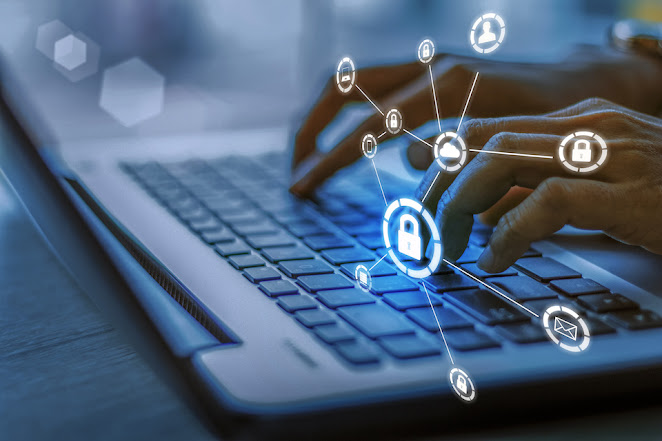Information Privacy And Security In Educational Technology
This is especially true in the age of technology that affect every aspect of our lives with education being just an area that it helps and transforms. In addition to the rapid growth of EdTech classrooms are lit by digital platforms that transcend the boundaries of technology to enable learning each day. In spite of the numerous advantages, there is an important issue: cyber security and protection of data.
The advent of Ed Tech tools ranging from interactive learning platforms to cloud-based education content has transformed the nature of education and created an educational environment that is full of possibilities for collaboration and engagement. The potential of students' access to huge amounts of information that can be easily understood by each student on their own and allows them to tailor learning plans to the needs of each student. In the same way, teachers who use data analytics may be confident regarding gaining information on the success of their students and altering the way they instruct.
But, this massive digital transformation has brought about a variety of privacy and security issues. Colleges and universities are viewed as responsible institutions, entrusted with the security and data of students. Security measures and regulations to prevent potential data leaks and misuse were enacted.
Understanding Privacy of Data for EdTech:
Data privacy deals with the security and privacy of information that is legally identifiable (LPI) and in this way, individuals are able to limit data access, use and sharing. This covers the student's academic records, data, as well as data on behavior gathered by educational systems and digital learning applications that are part of the latest technology in education.
Risks and Challenges:
The function of schools is more crucial as they must adhere to strict guidelines such as that of Family Educational Rights and Privacy Act in the USA or the General Data Protection Regulation in the EU. These laws dictate the action of schools on what data students' information should be kept, processed and secured.
In spite of the regulations education institutions face a myriad of problems in ensuring security and privacy:
Third-Party Service: EdTech generally uses services of third-party vendors to host websites and track data or analysis of a certain thing, or provide different services. This means that the storage or processing of data that falls under the institution's control is not assured as it could be generally carried out by a third party outside the institution.
Data breaches:
Furthermore, when we consider that educational institutions are a significant attack target because of the sensitive information they keep It is obvious that teachers, students, and the administrative staff should be aware of the steps designed to protect the institution in this area. The leak of data can be harmful to students' privacy and if this occurs, the reputation of the institution will be damaged.
Unawareness:
Students and teachers may not be aware of the personal data sharing online implications or may not be willing to accept data collection, even if they're unaware of the consequences.
Strategies to Ensure the Privacy of Data and Securing it:
The policies should be written by institutions that provide details about how data is collected and maintained in a secure manner, which includes security measures for sharing information. An annual audit and review could help identify the source of violations of laws.
Data Encryption:
Utilize encryption techniques to protect information while it is in transit or when they are in transit. A further layer added to protect your data is like making it harder for unauthorized access inside the private data.
Instruction for the User:
Instruct students, teachers and staff about the fundamental principles and techniques to keep information secure and confidential. Provide instruction on safe online practices and enable users to make their own decisions about personal information they are given.
Vendor Assessment:
When evaluating the privacy of data and security measures implemented by the manufacturers take into consideration purchasing an EdTech development. Check to see if the social media platforms you choose to use adhere to the rules of the law and have the right security tools.
Data Minimization
It is essential to only collect the relevant data required for educational purposes and limit access to only authorized persons. Utilize data anonymization when you can. If you don't, these risks are likely to increase.
Conclusion
Technology for Education has great potential to propel education and pedagogy forward, but it will not be enough to make its wide-spread use without an unwavering commitment to security and data protection. Schools contribute significantly in the safeguarding of students' data and the creation of a digital accountability system. Implementation of policies that are comprehensive and using encryption technology as well as the education of students we are able to say that EdTech will remain an excellent investment as it protects your privacy and rights as students and teachers.





Comments
Post a Comment